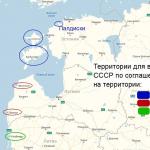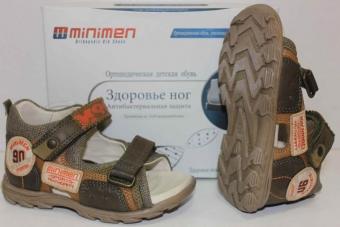Our body needs protein like air. This substance is responsible for the building processes in the body, metabolism, helps to grow, multiply, better absorb vitamins and minerals. How to eat properly so that the body receives the necessary norm of protein?
All proteins found in food can be divided into animal and vegetable, depending on the source of their origin. For many years now, there have been endless disputes between fans and opponents of vegetarianism: the former are sure that only vegetable proteins are enough to maintain an excellent state of health, while the latter insist that it is extremely important to introduce meat and dairy products into the diet.
Protein: the main problem
Lentils and beans can boast the same amount of protein as beef or pork. However, the most problematic is not the amount of such an important substance, but its digestibility. It turns out that in nature there are no food proteins that our body would perceive ideally, but still certain types are absorbed much better.
In the digestibility rating, the proteins that make up eggs and dairy products hold the championship. They are followed by proteins from poultry and mammals, fish and soybeans, and then legumes and nuts. Protein from cereals is the most difficult for the body to digest.
Remember that protein is best absorbed after heating (or as a result of heat treatment).
What foods contain protein?
The main source of protein is food of animal origin: meat (beef, pork), eggs, cottage cheese and other dairy products, poultry, fish and other seafood.
A large amount of protein is found in nuts and seeds: hazelnuts, peanuts, cashews, almonds, pine nuts, pumpkin, sunflower and hemp seeds.
Cereals are also not inferior in protein content: buckwheat- the queen among cereals in terms of protein content. Such a side dish as rice also rich in protein. And do not forget about the most useful oatmeal!
Lots of protein in legumes: beans, peas, lentils, soybeans.
Protein can be replenished with regular consumption whole wheat or rye flour bread. Hard wheat pasta also rich in protein.
Vegetables contain the most protein in asparagus, cucumbers, zucchini, zucchini, potatoes, Brussels sprouts, figs, avocados and etc.
10 foods with the highest protein content
Poultry meat - from 17 to 22 grams (per 100 grams of product)
Meat - from 15 to 20 grams
Fish - from 14 to 20 grams
Seafood - 15 to 18 grams
Eggs - 12 grams
Hard cheese - from 25 to 27 grams
Cottage cheese - from 14 to 18 grams
Legumes - from 20 to 25 grams
Cereals - from 8 to 12 grams
Nuts - from 15 to 30 grams.

Daily nsquirrel form
The daily requirement of an adult in protein is 1.3-1.4 g per 1 kg of body weight; for people who are engaged in physical work, this rate is 1.5 g of protein per 1 kg of body weight or more. Athletes need an average of 2.0-2.5 g of protein per 1 kg of body weight per day. Based on this standard, on average men need96-132 g of protein per day and 82-92 g for women.
Protein advice from nutritionists
According to nutritionists, it is desirable to combine protein products of both plant and animal origin in one dish. The most successful unions, which contain a sufficient amount and good quality of protein, can be considered cereals and muesli with milk, scrambled eggs with beans, sushi with rice and fish, rolls, as well as meat and poultry with a side dish of cereals or legumes.
You should also keep in mind the correct protein to fat ratio. Very often, foods rich in protein (such as cheese or nuts) contain a lot of fat. Due to their calorie content, they should not be abused.
Too much protein in the body
Lack of protein can cause extremely serious health problems, and therefore every day it is necessary to consume a sufficient norm of protein foods. But if the protein is abused, the state of health can also be significantly worsened.
First of all, it can happen intoxication, because during the digestion of protein, especially if it is of animal origin, many toxins are released into the body, which it needs to have time to remove.
Plus, animal protein provokes increased cholesterol in the blood and can cause cardiovascular disease.
And finally, scientists recently came to the conclusion that any excess protein is converted by our body into fat. Therefore, you should not abuse protein products - everything should be in moderation!
Proteins are complex organic compounds that consist of more than eighty amino acids. In the human body, they perform the following functions:
- take part in the absorption of carbohydrates, fats, vitamins, minerals;
- form compounds that provide immunity;
- serve as a material for the structure of tissues, cells, organs, the formation of hormones, enzymes, hemoglobin.
With a lack of this element in the body, serious violations occur. What foods contain protein? Plant and animal foods are an excellent source of it.
What foods contain the most protein?
- Beef contains a lot of protein. It is best to choose meat no older than two years. Beef should be boiled or stewed, so the body will get the maximum benefit.
- The liver is an important offal for humans, enriching nutrition with protein. It is better to use it boiled or in the form of pastes.
- Poultry - in addition to easily digestible protein, poultry meat has a low calorie content.
- Eggs - the protein from this product is perfectly absorbed in the body. Two eggs provide 17 g of protein.
- Cheese - contains a lot of valuable building element, but it is characterized by high calorie content.
- Cottage cheese - for better absorption of protein, use with yogurt or kefir with the addition of a small amount of sugar.

- Fish - rich in protein, perfectly digestible. It is better to choose anchovies, tuna, mackerel, sardines, salmon, mullet, pollock.
- Brussels sprouts are the number one vegetable in terms of protein content.
- Soy is a plant-based meat substitute.

- Cereals - contribute to good digestion, are easily digested, contain vegetable protein.

List of plant protein foods
Essential acids, which are components of pure protein, are also found in plant foods. Soy is an excellent source of plant-based protein. The product is devoid of fat, which has a beneficial effect on the liver. Soy protein is digested almost completely. Beans, other legumes and grains are also great alternatives to meat. Buckwheat is among the cereals in the first place, it abounds in iron and vitamins, and has a positive effect on hematopoietic function. Bran and oats contain protein, normalize blood pressure and remove cholesterol.

If you have given up animal food and become a vegetarian, then you should replenish your vitamin B12 reserves. He takes an active part in the processes of metabolism, the activity of the nervous system. As an alternative, choose baker's and brewer's yeast, seaweed, lettuce, green onions, spinach. They are excellent sources of plant-based protein.
List of animal protein products
Proteins of animal origin are the most complete, so their quality indicators are higher. Consumption of animal proteins has a positive effect. Their entry into the body of pregnant women at a later date guarantees the birth of a child with normal weight. Positive reactions from the use of proteins were observed in the elderly. The protein intake per day is 1.5 grams per kg of body weight. What foods contain protein?

In meat dishes, we can find the maximum amount of proteins. Depending on the variety, their content varies from 17 to 21%. Meat abounds in minerals, vitamins and water. Be sure to eat poultry, beef, lamb or pork, as they contribute to recovery processes. A valuable supplier of a building element is a rabbit. Game and chicken are better digested by the digestive tract. The protein of fish and seafood is also very valuable. Dairy and dairy products are rich in calcium and protein.
Table of foods containing a large amount of protein
Since protein is considered the basis of life, it is necessary to eat foods containing a large amount of it every day. The diet should consist of at least 30% protein. The table below shows a list of products from which you can get this indispensable element. It presents different varieties of meat, fish and dairy products, which will also enrich the diet with useful minerals and vitamins.
| Product | Amount of protein | Amount of fat | Amount of carbohydrates | Calorie content, kcal |
|---|---|---|---|---|
| goose meat | ||||
| Chicken | ||||
| lamb meat | ||||
| Lean beef varieties | ||||
| Lean pork varieties | ||||
| caviar | ||||
| Cod liver | ||||
| Cow's milk 1% | ||||
| hard cheese | ||||
| Sour cream
An important function of protein is the synthesis of collagen. Protein increases the elasticity and tone of the skin. Thanks to this, the muscles do not lose their elasticity, which often happens with improper weight loss. Protein food helps to avoid fluctuations in insulin, blood sugar. What allows you to control hunger, the protein does not allow excess glucose to turn into fat. Protein amino acids transport fatty acids, vitamins, minerals to all systems and organs. On a protein diet, it is necessary to reduce the consumption of fats, fast carbohydrates, cereals with gluten, and focus on protein and fiber. You should not completely deny yourself carbohydrates, since they are required as energy. To lose weight, it is better to give preference to such proteins:
Video: Protein diet for weight lossThe video below describes the list of products that contribute to the acquisition of a slim figure, provided that they are included in your daily diet.
|
Effective weight loss
Tupitskaya Julia especially for website
Here is a list of high protein foods.
Protein (protein) is an indispensable building block for our body. And few will dispute the benefits of natural protein sources over synthetic ones. Eggs, meat, vegetables, seafood - all these products contain a large amount of protein, but they all have their own characteristics.
Disputes about carbohydrates, fats and their effect on our body have been going on for a long time.
Eating protein-rich foods has many benefits. It promotes weight loss, increases muscle mass and gives strength. And these are just a few of the benefits.
Many health and fitness experts are convinced that the recommended protein intake per day is not high enough.
So what foods are rich in protein?
Foods high in animal protein
1 eggs
Long before the invention of synthetic protein, eggs were indispensable in the diet of athletes. However, in terms of protein content, any meat steak will surpass an egg, since this figure does not exceed 7 grams. The secret of success is this:
- Egg protein is 95% digestible
- The egg contains a minimum of fats and carbohydrates,
- Just in preparation.
They are also full of vitamins, minerals, antioxidants necessary for vision, and nutrients necessary for brain activity, which we do not receive in sufficient quantities.
The whole egg is a source of protein, while egg white is pure protein.
1 whole large egg is 6 grams of pure protein, 78 kcal.
2 chicken breast
Chicken breast is a very famous product with the highest protein content and is considered a dietary product due to its low fat content (below 8%). And here protein content per 100 g of meat exceeds 24%. Thanks to this, the body receives 130 kcal.
Chicken breast is very easy to prepare and incredibly tasty when done following simple cooking rules.
3 Turkey breast
Turkey breast is very similar in its characteristics to chicken breast meat and is simply indispensable for those who want to lose weight without reducing muscle mass.
It is extremely tasty and contains few calories.
Boiled turkey contains selenium, which is extremely important for maintaining hormonal levels.
100 g of turkey contains 19 g of protein, which provides the body with 84 kcal.
4 Red meat
Beef is an important and incredibly appetizing source of protein. Moreover, it contains a large amount of vitamins B3 and B12, iron and zinc.
100 g of lean beef contains 16 g of protein and 150 kcal.

Dairy products rich in protein
1 Cheese "Cottage" (Curd cheese)
Cottage cheese, or cheese "Cottage" - is a grain cottage cheese with the addition of fresh salted cream. This cheese is extremely low in calories.
But at the same time, it contains a lot of calcium, phosphorus, selenium, vitamin B12, riboflavin (vitamin B2) and other variety of microelements.
100 g of cheese contains 11 g of pure protein.
The following cheeses are also rich in protein:
Parmesan, Swiss cheese, mozzarella and cheddar.
2 Greek yogurt, or filtered yogurt
Low-calorie, fortified with calcium and probiotics, this yogurt has an extraordinary taste and a thick creamy texture.
100 g of fat-free yogurt contains 10 g of protein (exactly the same amount of protein contains 40 g of chicken breast).
Moreover, yogurt is a source of magnesium, riboflavin, and pantothenic acid.
Its calorie content is 53 kcal per 100 g.
Just make sure you choose yogurt with no added sugar. Full fat yogurt is also very high in protein, but higher in calories.
Including the following foods rich in protein: plain fat yogurt (24%) and kefir (40%).
3 Milk
Milk is a very important source of protein, but a large number of adults have trouble absorbing cow protein. But if you are not one of them and can enjoy milk to the fullest, then it is an ideal source of high quality protein.
Milk is enriched with calcium, phosphorus and riboflavin (vitamin B2).
Protein in a glass of milk is about the same as in 1 egg, namely 8 g.
Due to the different percentage of fat content, calorie content ranges from 44 to 64 kcal per 100 g of milk.
4 Whey protein
It is made from whey, which is formed during the manufacture of cheese.
And as you know, whey is a high-quality protein from dairy products that has proven to be a very effective muscle builder, as well as an assistant in the fight against excess weight.
This product is very quickly absorbed by the body and is rich in amino acids.
1 serving (35g) contains 27g of pure protein.
It is accepted depending on your weight.
Nuts and grains are the main sources of protein
1 Almond
Almonds are the richest in protein compared to other types of nuts - 18%.
100 g of almonds contain 19 g of pure protein.
However, it is very high in calories 645 kcal per 100 g of nuts. The main calories are saturated and unsaturated fatty acids. Also in the composition there is vitamin A, thiamine, many B vitamins and other trace elements.
Pistachios (13%) and cashews (11%) occupy an honorable second and third place among the nuts rich in protein.
2 Peanuts
Peanuts have an optimal ratio of amino acids, so they are perfectly absorbed by the human body. It is also rich in various vitamins, lionic and folic acid, antioxidants and other beneficial trace elements.
The nutritional value of peanuts is 552 kcal per 100 g.
100 g of peanuts contain 26 g of protein.
3 pumpkin seeds
Pumpkin seeds are incredibly useful: they contain a lot of zinc, iron, magnesium, phosphorus and manganese, as well as a wide variety of vitamins (groups B, A, E, K)
100 g of seeds contain 19 g of protein.
Flax seeds (12% of calories), sunflower seeds (12%) and chia seeds (11%) in terms of protein content, they are not far behind pumpkin seeds.
4 Hercules
Hercules is a protein rich product that is amazing in its nutritional value and content of nutrients, which is ideal as a breakfast.
100 g of hercules contain 352 kcal.
Flakes are especially rich in B vitamins, magnesium, iron, selenium, phosphorus and many other trace elements.
100 g of hercules contains 10-12 g of pure protein.
5 Quinoa
Few people have heard such a name, and even more so they are fully aware of the usefulness of this cereal. And by the way, quinoa is in the top 20 healthiest foods high in protein.
100 g of cereal contains more than 14 g of protein, this is an excellent source of protein.
Also, this culture is rich in all kinds of vitamins (A, groups B, C, E) and trace elements such as iron, sodium, zinc - and these are just a few of them.
6 Lentils
Dishes prepared from lentils are distinguished by excellent taste and an unimaginable set of trace elements. Boiled lentils contain vegetable protein ( approximately 8 g per 100 g of product), but due to the low content of amino acids, its absorption by the body is very slow.
It is rich in iron, magnesium, folic acid. Another important feature of lentils is the inability to accumulate toxins, so we can safely call it an environmentally friendly product.
The calorie content of lentils is 112 kcal per 100 g.
7 Bread Ezekiel
Nutritious and easily digestible, Ezekiel bread is made from sprouted grains and legumes, including millet, barley, wheat, soybeans and lentils.
Ezekiel is unique in that it is a very rich source of protein, fiber and various other micronutrients.
1 slice of bread contains 4 g of protein and 80 calories.

Plant-based high-protein foods (vegetables)
1 Broccoli
This type of cabbage occupies a leading position in terms of protein content among vegetables ( 100 g of cabbage contains 3 g of pure protein), and also it is a storehouse of vitamins and minerals, so necessary for our health - vitamins A, B, E, C, K, fiber, iodine, phosphorus and other trace elements.
Broccoli also contains bioactive nutrients that help fight cancer cells.
In addition, broccoli is low in calories: only 30 kcal per 100 g.
2 Brussels sprouts
This miniature cabbage contains a significant amount of high quality and easily digestible protein ( about 4 g per 100 g cabbage).
And also saturated with fiber, vitamin C, phosphorus, provitamin A.
Like most vegetables, it is low in calories, which allows it to fit perfectly into the diet of people seeking to lose extra pounds. The nutritional value is 43 kcal per 100 g of the product.
Fish and seafood are the most important foods rich in protein.
1 fish
Fish is an extremely useful product for many reasons.
It is rich in many micronutrients, and most importantly, contains omega-3 fatty acids, which are extremely important for heart health.
Different types of fish contain different amounts of protein in their chemical composition. In salmon, for example, 21 g of pure protein per 100 g of product, while their calorie content is 172 kcal.
Among other fish, it stands out especially tuna.
Tuna is almost pure protein, as it contains very little fat and calories. Tuna contains a wide variety of nutrients and a significant amount of omega-3 fatty acids.
100 g of tuna contains 29 g of protein, which gives the body 96 kcal.

2 Shrimps
Shrimp are a storehouse of protein, vitamins and minerals. Shrimp is a low-calorie food, but full of a variety of nutrients, including iodine, selenium and vitamin B12, omega-3 fatty acids.
100 g of shrimp contain 18 g of protein, which gives the body 84 kcal.
And finally,
When compiling a daily diet, it is necessary to alternate foods high in protein of plant and animal origin to balance the diet and ensure that you receive other micronutrients that are critical for health.
Each product contains three important components. These are proteins, fats and carbohydrates. A person who thinks about his health should allocate a special place in his diet for the most useful of them - proteins. By eating foods with the highest protein content, you can improve your health, make your appearance more attractive, and even lose weight. This nutrient is the basis of life and the building material of the body.
Why is it important to eat high protein foods?
Enriching your diet with protein-rich foods is important for a number of reasons. One of them is the fact that protein (or protein, as it is also called) is involved in the structure of muscle tissue. It is for this reason that high-protein nutrition is recommended for professional athletes, fitness enthusiasts, and children.
Supporters of a healthy lifestyle and quality nutrition should be aware that their daily protein requirement is calculated based on weight. For every kilogram of human weight per day, there should be 2 grams of protein. That is, if a person weighs 70 kilograms, then a day he should include about 140 grams of protein in his food. Studying the list of foods that contain a lot of proteins, you can see that some of them are quite high in calories, while others, on the contrary, provide very little energy. This fact should also be taken into account when choosing the right diet.
On the other hand, according to experts, the daily requirement for proteins should generally be 40% of the total food intake. This is one of the keys to good nutrition.
Protein is very important to eat for physically active people, because it is able to restore the expended energy of a person. When an excess of protein occurs in the body, it does not turn into fat and does not lead to the appearance of extra pounds, unlike carbohydrate foods.
Before the main table of proteins in foods is described, it is worth paying attention to the negative qualities of protein foods.
Harm from protein foods
As you know, fats, carbohydrates, and proteins can harm the human body if consumed in excess. Therefore, harm to the body is possible only in the case of the formation of excess protein in the body. This is due to the fact that only the necessary need for proteins is easily absorbed by the body. The rest needs to be recycled. This process requires the participation of calcium. If it is not enough in the body, it will be drawn from the bones. Constantly exceeding the norm of protein can lead to a number of unpleasant diseases. For example, osteoporosis.

It is very important to study the composition of proteins in foods for another reason. Their excess leads to unnecessary stress on the kidneys. When eating food with a high content of animal protein, it is worth remembering that cholesterol enters the body along with it, which adversely affects the human body.
In order to avoid all of the above side effects, you need to add proteins to the diet, depending on the needs of your body. It is worth paying attention to the total calorie content of a product containing a lot of protein. It is found in large quantities in meat products, eggs, cheese and cottage cheese, cereals and some other products.
Both animal and vegetable protein are very important for the body. The list of products containing it should start from the first. Animal protein is also called a complete protein. This is due to the content of a complete amino acid complex in it.

Products containing protein in large quantities of animal origin are meat products. Their list starts with chicken and turkey. Every 100 grams of chicken or turkey meat contains about 20 grams of protein. From these products, it is easily digestible. In addition, these two types of meat are considered dietary due to their low calorie content. They must be added to a balanced diet.
Products with the highest protein content can also include another type of meat - beef. There are about 25 grams of protein per 100 grams of beef meat. But it is much more difficult for the body to digest. That is why it is better to eat it boiled.
A large amount of protein is found in beef, pork or lamb liver. About 18 grams per 100 grams of product. It is recommended to use it in a stew.
There are other foods that contain large amounts of animal proteins. It's fish and seafood. It is a storehouse of protein and other useful trace elements. Any fish is easily digested by the body, which absorbs all the nutrients. Supporters of a healthy diet should definitely include this type of protein-containing food in their diet.
Protein in cereals
Protein is found in a number of cereals. In addition, each of them is useful for the good functioning of the digestive system. Protein in foods, that is, in cereals in this case, is contained in different quantities. But it is absorbed equally well.

Buckwheat groats contain 12% vegetable proteins. It is very beneficial for the body. Oatmeal is no less useful and comes second on the list in terms of protein content. It has 11 grams of protein per 100 grams of cereal. Wheat groats are on the same position as oatmeal. It also contains 11 grams of protein.
Completing the list of cereals rich in protein is rice and corn. They have 7-8% protein content.
Porridges are very useful for the human body, but when adding them to the diet, it is worth remembering that carbohydrates are the main part of them.
Protein in eggs
When it comes to protein-containing products, the question of how much protein is in one egg is considered natural.

Chicken eggs come in a variety of sizes and weights, but on average two eggs make up 100 grams of total weight. Accordingly, one egg can contain about 50 grams of mass. 100 grams of such a product accounts for 17% of proteins. This means that one egg contains about 8.5 grams of protein.
It is from this product that protein is absorbed best. Its calorie content is quite low. Chicken eggs also contain many useful acids that are involved in important metabolic processes in the human body.
Protein in cheese, cottage cheese and milk
Foods with the highest protein content are also cheese and cottage cheese. Each of them is worth considering separately.
Cottage cheese contains about 14% protein. It is very beneficial for the body. It is high in calcium, which in some cases may be required for protein processing. Depending on the fat content of the cottage cheese and the protein content in it may vary slightly. It is recommended to add fat-free cottage cheese to the diet.

Hard cheese is made from cottage cheese. But the protein content in it is twice as much. So, on average, 100 grams of cheese contains about 30 grams of protein. It is worth noting that hard cheese is very high in calories, and you need to add it to the diet in small quantities.
The table of proteins in products contains information that milk consists of only 5% of them, despite the fact that cottage cheese and cheese are its derivatives.
Other High Protein Foods
There are other favorites in terms of protein content. What foods are high in protein? First of all, it is soy, lentils and Brussels sprouts.
Knowing how much protein is in one egg, 100 grams of meat, cottage cheese, cheese, various cereals, you can easily create a balanced diet that will help the body effectively build muscle tissue, lose extra pounds and restore energy after exercise.
Trying to lose extra pounds and find a slender figure, it is important to remember that the diet must be balanced. In order for the body to look harmonious, it is imperative to consume protein. This is the "foundation", the building material for muscle structures. Protein provides the functional work of the body, is used for the formation and repair of tissues. It is essential for health and wellness, so you need to know what foods to include in your diet.
boiled veal
Young veal refers to meat “aged” from 4 months to 1 year. It has a light pink color. If the calf has been fed grains, the meat may take on a rich pink hue. Veal is valued for its exquisite and delicate taste.
Did you know?
People who cut out protein lose weight quickly. But it’s not the extra pounds that disappear, but the muscle mass. The body begins to sag, the tone goes away. A protein-free diet causes the body to use its own reserves - it takes "building material" from other muscles.
nuts
Nuts are a high-calorie product, so many people try to limit their use so as not to spoil the figure. But you should not completely abandon them - they contain saturated and unsaturated fatty acids, protein.
Peanuts have the most protein - 26 g per 100 g. Cashews are in second place - 21 g. Almonds contain 20 g of protein, and pistachios - 10 g.
It is one of the most protein-containing products of plant origin. Soy is used as a meat substitute, added as an additional ingredient. It is included in the menu of vegetarians - it can be turned into fragrant "sausage", tender pate and other "meat" dishes.
The calorie content of soy is 381 kcal per 100 g, and the protein content is 28-29 g.
Carefully!
Excessive consumption of soy can provoke the development of a number of diseases: hives, dermatitis, asthma, and also lead to hormonal disruptions.
canned tuna
Canned tuna contains 23.5 g of protein per 100 g. It can be served with vegetables or beans.
Did you know?
Fish and seafood are rich in protein, which is perfectly absorbed by the body. Most of the protein is found in tuna, salmon, saury, mackerel. Low-fat varieties of fish can be cooked for dinner.
poultry meat
Poultry meat is a high protein food. It is highly digestible and considered low in calories, so it can be included in the diet of people who want to lose weight. 100 g of meat contains 18 - 20 g of protein.
This is a favorite product of many, which is a storehouse of calcium. And it also has a lot of protein - from 22 to 30 g per 100 g, depending on the type of cheese. The composition contains vitamin D and fats, so calcium is perfectly absorbed. Daily rate - 30 - 50 g per day.
Liver
This by-product is available and inexpensive, has a high protein content. The liver can not only be stewed, but also cooked pates from it. Goose liver is especially useful. In addition, it has an incredibly delicate taste - exquisite expensive delicacies are prepared from it.
The liver contains approximately 15 - 17 g of protein per 100 g of product.
Quail eggs
This is a dietary hypoallergenic product, it does not contain cholesterol. Although they are quite small in size, they contain a huge amount of vitamins, trace elements and amino acids. Quail eggs normalize metabolism, promote blood circulation, and activate mental activity.
100 g of this protein product contains 11.9 g.
Pumpkin seeds
Seafood
Seafood is useful for the body, they contain a lot of iodine, valuable elements, amino acids, proteins, which are quickly absorbed. Be sure to include crabs, shrimp, mussels, squids in your diet. 100 g of seafood contains 22 g of protein.






